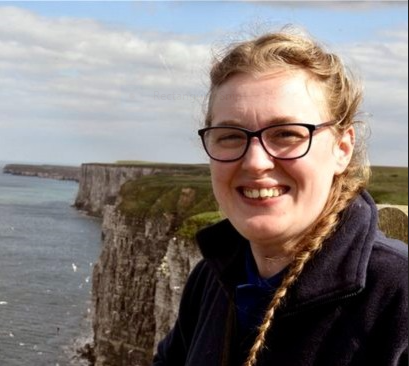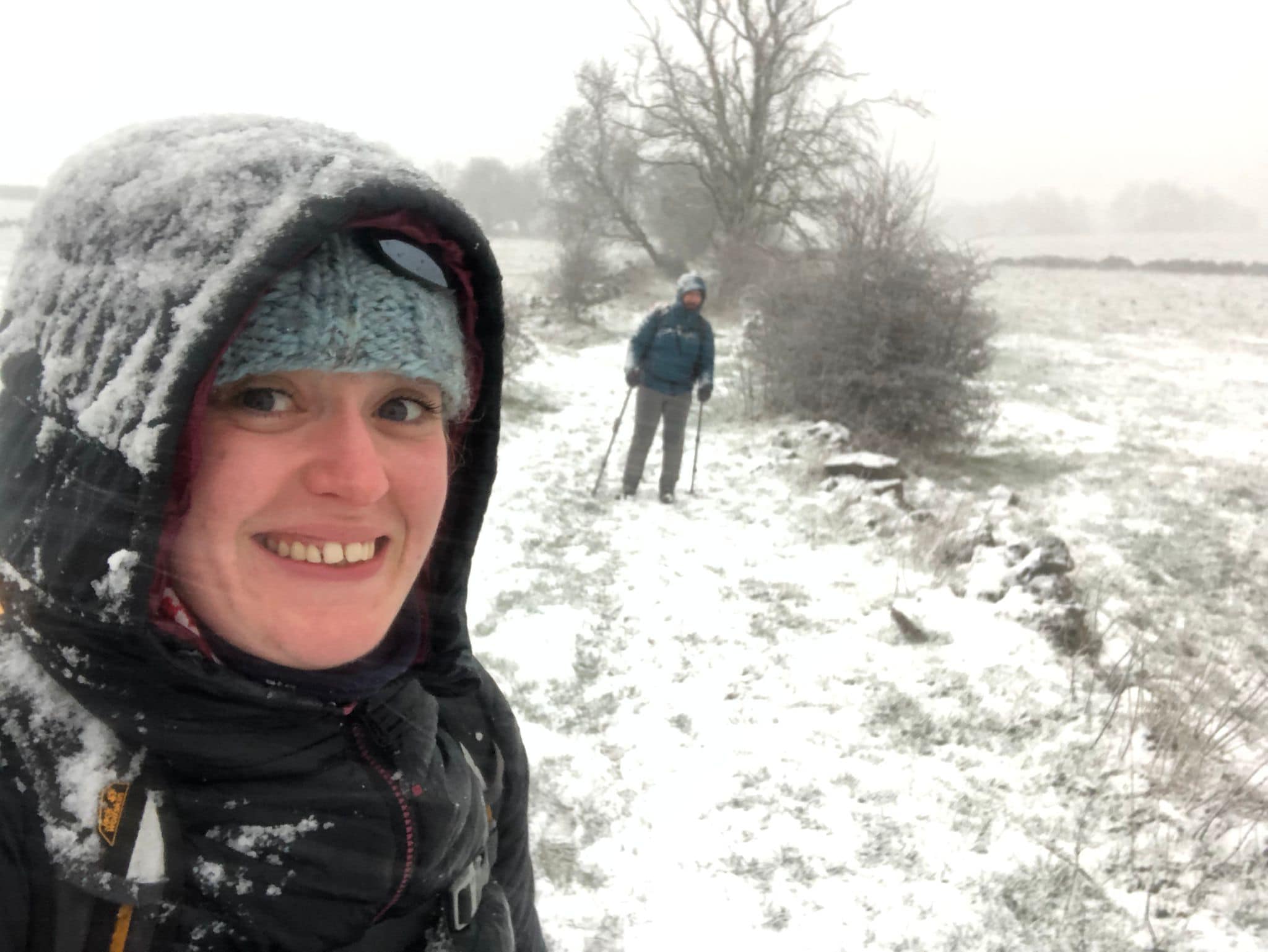What’s your favourite childhood memory – and did it involve nature?
By Abbie Ferrar, North East Scotland Biodiversity Partnership (NESBiP), Biodiversity Coordinator
Abbie Ferrar has recently joined the Hutton-hosted North East Scotland Biodiversity Partnership (NESBiP) as Biodiversity Coordinator. She tells us why and why connecting with nature is important.
Take a moment and have a think about what your first or favourite childhood memory is. Don’t be shy…
By any chance are you outside in nature? My first memory certainly is. It is of getting snowed in at my Grandparent’s in North Yorkshire with my younger brother and dad, spending most of the time outside building igloos or beating my brother at snowball fights.
I’m a little hazy on how long it lasted or even if I got cold and wanted to stop. But I do remember being outside – and loving it.
That experience sewed a seed for a lifelong love for the outdoors and nature and this is an important point. We know that early experience outdoors embeds how we feel about nature.
And yet. Did you know that children are spending 50% less time outside than their parents did? Or that a lack of learning outdoors is steadily resulting in a “Nature Deficit Disorder”?
Sir David Attenborough puts it well: “If children don’t grow up knowing about nature and appreciating it, they will not understand it. And if they don’t understand it, they won’t protect it. And if they don’t protect it, who will?”
This is why I’m glad to have become coordinator of the North East Biodiversity Partnership to help tackle a crisis that’s impacting us all – the nature crisis.

A little about me
My experience could have been very different. I grew up in a medium-sized land-locked city in the East Midlands of England. But I spent most of my childhood and teenage years up a hill with my dad in the Peak or Lake District or exploring the Yorkshire Moors with my grandad.
This experience of the outdoors and nature led me to want to pursue a degree in Marine Biology, which led to a love for seabirds and their ecology.
But it was a chance meeting with a disconnected eight year old that led to a move away from science and towards environmental education and people engagement.
I was supporting an education team on a beach clean and chatting to a class of school children about a ringed plover nest we had found and the importance of us keeping our distance.
The eight year old told me they had never been to this beach before because you couldn’t swim on it and it was boring. The beach was just five minutes’ walk from the school. I had spent most of my free time walking on it and it shocked me that they had never been to it.
That’s when I decided I wanted to connect people to nature – to have the same passion and love for it as I have.
So here I am now, with three years of marine ecology experience and eight years of connecting people of all ages to nature. Hopefully saving the world in a different way.

Key things I’ve learnt
Throughout my time connecting people to nature, I’ve learnt some key things.
Nature connection isn’t as simple as spending 30 minutes a day outside on a walk or tending to your garden. It’s that spark you have for nature, that warm excited feeling you get when something marvellous happens when in nature.
It’s that look in the eye of a child that once feared creepy crawlies and is now confidential holding one.
Nature connection isn’t as simple as studying it. Even if you study environmental sciences or zoology, you can still be somewhat disconnected from nature. As a late teen/young adult, my interest in being outside all but disappeared, possible due to not having easy access to it or just simply wanting to spend my time in the pub – or being naïve and thinking it always be there.
We’re lucky, in the UK, to have the nature we do, and we need to protect it.
I lived in Malta for four years. It’s very urbanised with little to zero areas of nature. Even without the illegal bird hunting. There, I felt completely disconnected from nature and I struggled mentally due to it.
We need to protect what we have, and we need to share our passions with the younger generation. Children instinctively want to spend time outdoors – they just need a bit of help.
So why NESBiP?
If you haven’t heard of NESBiP, it is (as the name suggests) a partnership of key stakeholders working together to exchange expertise, connect people with nature and collaborate to get the best possible benefits.
Conservation can be complicated and scary. Even for the experts. You often don’t know where to begin when looking for answers. Or even how to ask what you are looking for. But partnerships like NESBiP can help.
Communities bring people together into places where you feel safer, more secure and valued. You can find answers. My grandma often said, “If you don’t ask, the answer will definitely be a no!”
NESBiP is a community, it brings people of all fields together to make North East Scotland better than how we found it.
I’m hoping the knowledge and skills I have helps connect more people with nature. My first big task is restarting the NESBiP school camera trap project and helping schools across the North East connect to nature in their school grounds. If you’d like to join a waiting list to be involved or would like more information, contact us on nesbip@hutton.ac.uk.
Have I inspired you to start some outdoor learning for your students or children? Find out who offers outdoor learning in the North East here.
Have I inspired you to join NESBiP? Found out how you can here: www.nesbiodiversity.org.uk Or simply follow us on Facebook North East Scotland Biodiversity Partnership.
Disclaimer: The views expressed in this blog post are the views of the author(s), and not an official position of the institute or funder.
